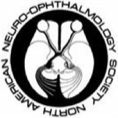Introduction: Resident sleep deprivation is an important topic given its negative effect on neurocognitive performance. The King-Devick test (KDT), which tests speed and accuracy of number-reading, requires integrity of saccades, visual processing, and cognition. The purpose of this study is to investigate neurocognitive effects of sleep deprivation in on-call residents using KDT.
Methods: A prospective, cohort study was conducted among 80 residents (PGY2-4) from multiple departments of an urban teaching hospital. KDT was performed at the beginning and end of an overnight call shift for the residents in the experimental group. A control group was tested at the beginning of 2 consecutive day shifts. Estimates of hours of sleep, Karolinska Sleepiness Scale (KSS) (1=extremely alert, 9=extremely sleepy), and time and accuracy of KDT, the primary outcome variable, were recorded. We performed t-test, regression analysis, and correlation analysis. Statistical significance was set at p<0.05. Results: 42 residents were tested before and after overnight call shifts and 38 served as controls. Mean age and gender breakdown were similar between groups: age 28.95 years (standard deviation (SD)=2.49) in experimental group and 29.84(SD=3.36) in controls (p=0.18); 47.6% female in the experimental group and 47.4% in controls (p=0.98). Change in test time was significantly different between the groups, with the experimental group performing 0.54 (SD=4.0) seconds slower after their night on call and the control group performing 2.32 (SD=3.0) seconds faster on the second day, p<0.001. Residents reporting more sleep the night between the two tests had greater improvement in their test times (Pearson r=-0.31, p=0.005). Residents reporting more sleepiness on the KSS had less improvement in their test time (r=0.25, p=0.027). Conclusion: Sleep deprivation and self-reported sleepiness were inversely correlated with neurocognitive performance as measured by KDT. More research is required to determine whether this test could help determine resident fatigue or ability to continue working after a long shift.
Summary Points:
- Sleep deprivation and self-reported sleepiness using the Karolinska Sleepiness Scale were correlated with worse performance on KDT.

